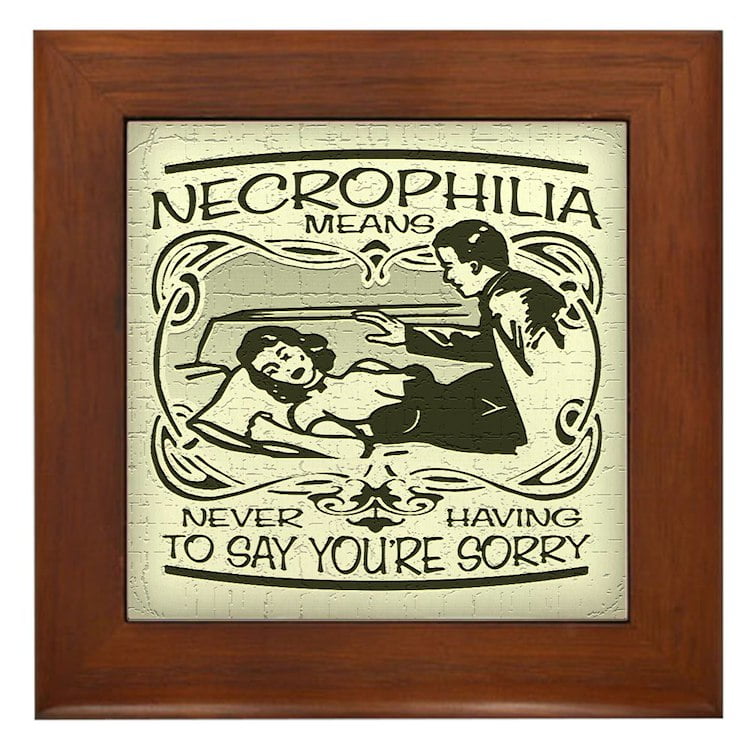Human sexuality extends a variety of attitudes and differs from society to culture, thus creating it hard to decide what type of sexual expression is acceptable. Sexual Deviant is defined as any individual exhibiting sexual behaviors that do not conform to the standard norms of society or culture. There has been some effort to define sexual deviation under the umbrella of sexual paraphilias from a clinical point of view.
What is a Sexual Deviation?
Sexual deviation or sexual perversion refers to any sexual behavior like paraphilia that significantly deviates from the standards established by culture or sub-culture. Sexual deviation also indicates the experience of intense sexual arousal to atypical objects, fantasies, situations, behaviors, or individuals.
Sexual deviant behavior is culturally and historically specific. It typically indicates the behavior where individuals seek erotic gratification through means that are considered odd, different, or unacceptable to either most or influential person in one’s community. It is difficult to understand sexual deviation with the help of a definition because of the complexities within gender, sexuality, crime, and deviance to do so.
More simply, the sexual deviation can be defined as sexual behavior perceived as deviant in a particular society.
Exploring the Sexually Deviant Personality Traits
In the realm of psychology, the term “sexual deviant personality trait” lacks formal recognition, but discussions surrounding sexual deviance delve into behaviors that diverge from societal norms. Understanding the nuanced interplay of sexuality, cultural influences, and personality traits is crucial for fostering a sensitive and informed perspective.
Sexuality Across Cultures
Sexuality is a multifaceted aspect of human experience, varying across cultures and historical periods. What one society deems as normal may be considered deviant in another. Recognizing this diversity is essential for a comprehensive understanding of sexual behaviors.
Personality Traits and Sexuality
While personality traits shape an individual’s approach to the world, it’s important to note that they do not singularly determine sexual deviance. For example, individuals high in openness to experience may exhibit a willingness to explore unconventional sexual preferences. Those with a sensation-seeking trait might engage in adventurous behaviors, while high neuroticism levels could lead to increased anxiety about sexual activities. Conversely, conscientious individuals may adhere more closely to societal norms.
Paraphilias as a Dimension of Deviance
Paraphilias, characterized by intense arousal to atypical stimuli, often involve socially unconventional sources of sexual pleasure. Examples include exhibitionism, voyeurism, sadism, and masochism. Understanding paraphilias contributes to a nuanced comprehension of what society may classify as sexually deviant behaviors.
Navigating Subjectivity in Deviance
The classification of sexual behaviors as deviant is subjective and context-dependent, influenced by prevailing social, cultural, and religious beliefs. Navigating this subjectivity requires approaching discussions with sensitivity, steering clear of stigmatization.
In conclusion, the exploration of sexual deviance involves a complex interplay of personality traits, cultural influences, and societal expectations. Recognizing the diversity of human sexuality and approaching the topic with an open mind fosters understanding, contributing to a more inclusive and informed dialogue.
Exploring the intricate web of factors that contribute to sexually deviant behavior reveals a complex interplay of biological, psychological, and environmental influences. Delving into these aspects provides valuable insights for a nuanced understanding:
Reasons or Psychology Behind the Sexual Deviant Behavior of a Person
- Biological factors, including genetics and neurobiology, are recognized contributors to the development of paraphilic behaviors. Hormonal imbalances and differences in brain structure may play a role, although it’s crucial to emphasize that these factors interact with psychological and environmental elements.
- Various psychological theories offer perspectives on the origins of sexual deviant behavior. Freud’s psychoanalytic theory suggests unresolved conflicts during psychosexual development can lead to atypical desires. Behaviorist theories propose learned behaviors through conditioning, while cognitive-behavioral theory targets distorted thought patterns that contribute to paraphilic behaviors.
- Early experiences and traumas, such as exposure to inappropriate sexual content or abusive dynamics, are considered potential contributors to paraphilic behaviors. These experiences can shape an individual’s sexual development and preferences.
- For some, engaging in sexually deviant fantasies or behaviors serves as a form of escapism from stress or emotional difficulties. These fantasies may provide a sense of control and pleasure beyond conventional means.
- Cultural norms, societal attitudes and media portrayals significantly influence the development of paraphilic behaviors. Individuals may be drawn to taboo behaviors as a way to challenge norms or explore forbidden territory.
- Certain mental health conditions, like personality disorders, may increase the likelihood of engaging in paraphilic behaviors. For instance, antisocial personality traits could be linked to a lack of empathy, potentially leading to harmful behaviors.
Signs and Symptoms of Sexual Deviance

The psychological examination and assessment of 20 paraphilia sexual aggressors is conducted, and it revealed the following common characteristics exhibited by the patient group
- Lack of responsibility
- Lack of empathy
- Suspicion
- Low sensitivity
- Absence of feeling of guilt
- Aggression more than normal
- Criminal behavior
Deviant Forms of Sexual Behavior

Voyeurism
It is a form of paraphilia and is defined as an act of observing and peeping that is arousing. It is not associated with any sexual activity with the observed person. Voyeurism starts during early adulthood or adolescence, and this type of paraphilia is commonly found in men.
Fetishism
It is a form of sexual deviance that involves erotic attachment to an inanimate object or an ordinary asexual part of the human body. It also refers to a charm that is thought to have some magical or spiritual powers. This mental condition is exclusively found among men.

Bestiality
It is also known as zoophilia and involves sexual activities with lower animals. It is also associated with recurrent intense sexual fantasies and urges with animals.

Necrophilia
It is a psychological disorder that refers to the sexual attraction or excitation of a person toward dead bodies. Different schools of thought support necrophilia by stating that the person who cannot accept the death of his loved one becomes necrophilia, but the world health organization categorizes it as a mental disorder and paraphilia.

Pedophilia
It is a disorder characterized by intense sexually arousing fantasies or urges that typically involve children. It is classified as a mental disorder because it can harm others as well. Its treatment includes long-term psychotherapy and medications that alter sex drive and reduce testosterone levels.

Exhibitionism
It is a derivation of sexual gratification through the compulsive display of one’s genitals and is regarded as deviant behavior when it occurs outside the context of intimate sexual relations. Sometimes Normal individuals experiencing any personal loss or facing severe mental trauma turn to Exhibitionism.
Transvetism
It is a mental disorder that involves intense sexual arousal from cross-dressing and causes significant distress or potentially interferes with daily functioning. People with transvestism are called cross-dressers. Psychotherapy is more effective than medications in treating transvestism.
How do people become sexually deviant?
It is suggested by research that different factors contribute to sexual offending behavior. Adverse conditions in an individual’s early development result in poor attachment to others. Especially caregivers, and these negative situations contribute to the development of sexual offending behavior.
Relation Between Personality and Sexual Deviated Thoughts

The study reveals some interesting links between personality and sexually deviant behavior.
- The psychopathic traits may be differentially associated with specific types of sexual offending, and this rate has been shown higher among rapists than child molesters
- Sexually deviant thoughts for neurotic individuals may be unwanted and intrusive. So neurotic individuals supposed themselves as being unwanted victims of bondage in these thoughts
- Correlations of this study also suggest that deviant sexual thoughts of the sub-clinical psychopath may convert into deviant sexual behaviors
- However, the above mention statement cannot be said in the case of neurotic individuals
- Even though narcissism has a strong co-relation with deviant sexual behaviors but this association was not as strong as the relationship with sub-clinical psychopathy.
- The relationship between pornography and deviant sexual behavior is moderate by sub-clinical psychopathy.
What Kind of Sexual Deviant Are You?
In order to understand your sexual diversity, you need to ask yourself a few questions and analyze yourself. If you are unable o do this for yourself then you ca take the help of a health care professional also. One of the easy ways is to attempt a quiz and its answers will help you discover about yourself.
Final word
Sexual deviant behavior is a combination of various types of sexual behavior and aggressive behavior that influence the personality in many ways. Studies and research are going on to establish a more clear relationship between sexual deviance and psychopathy disorders. Sexual deviation needs to be addressed and focused on in the same way as other common mental disorders like depression, hallucination, etc.










1 thought on “Sexual Deviant Personality Traits | Symptoms, and Types”
where can i find free sexual deviant classes in cobb county…. I am a mental health provider